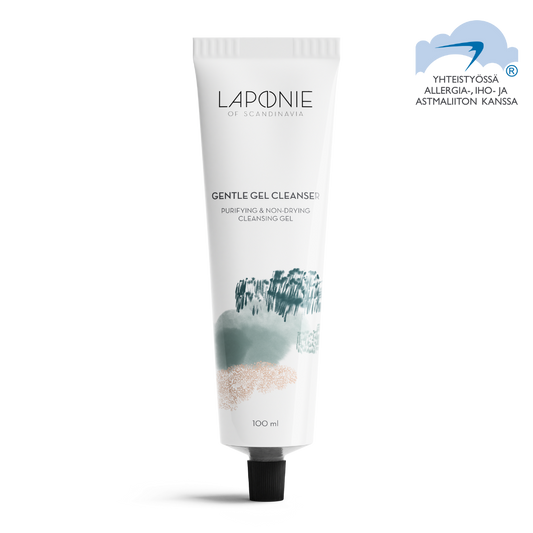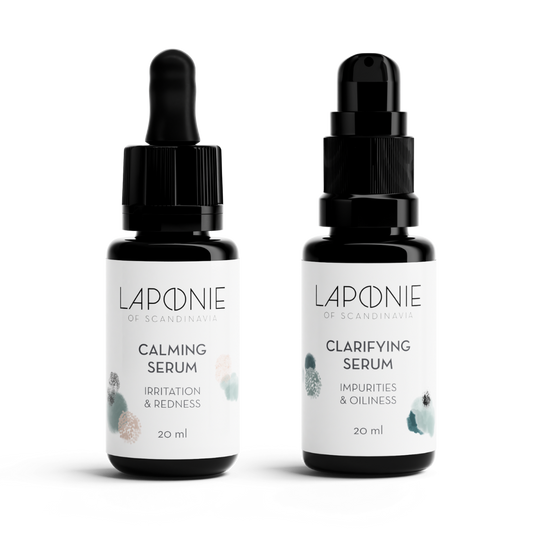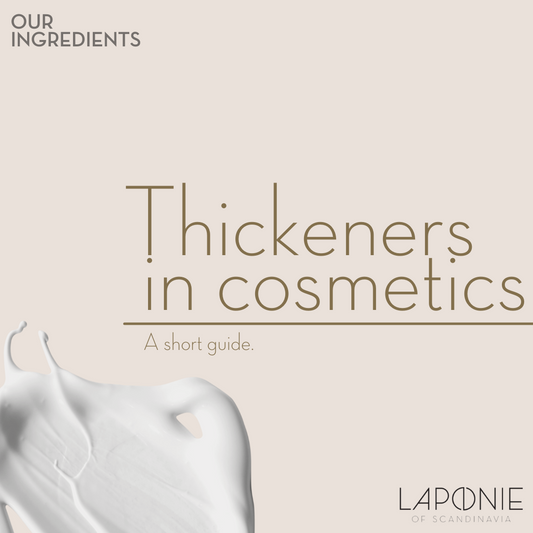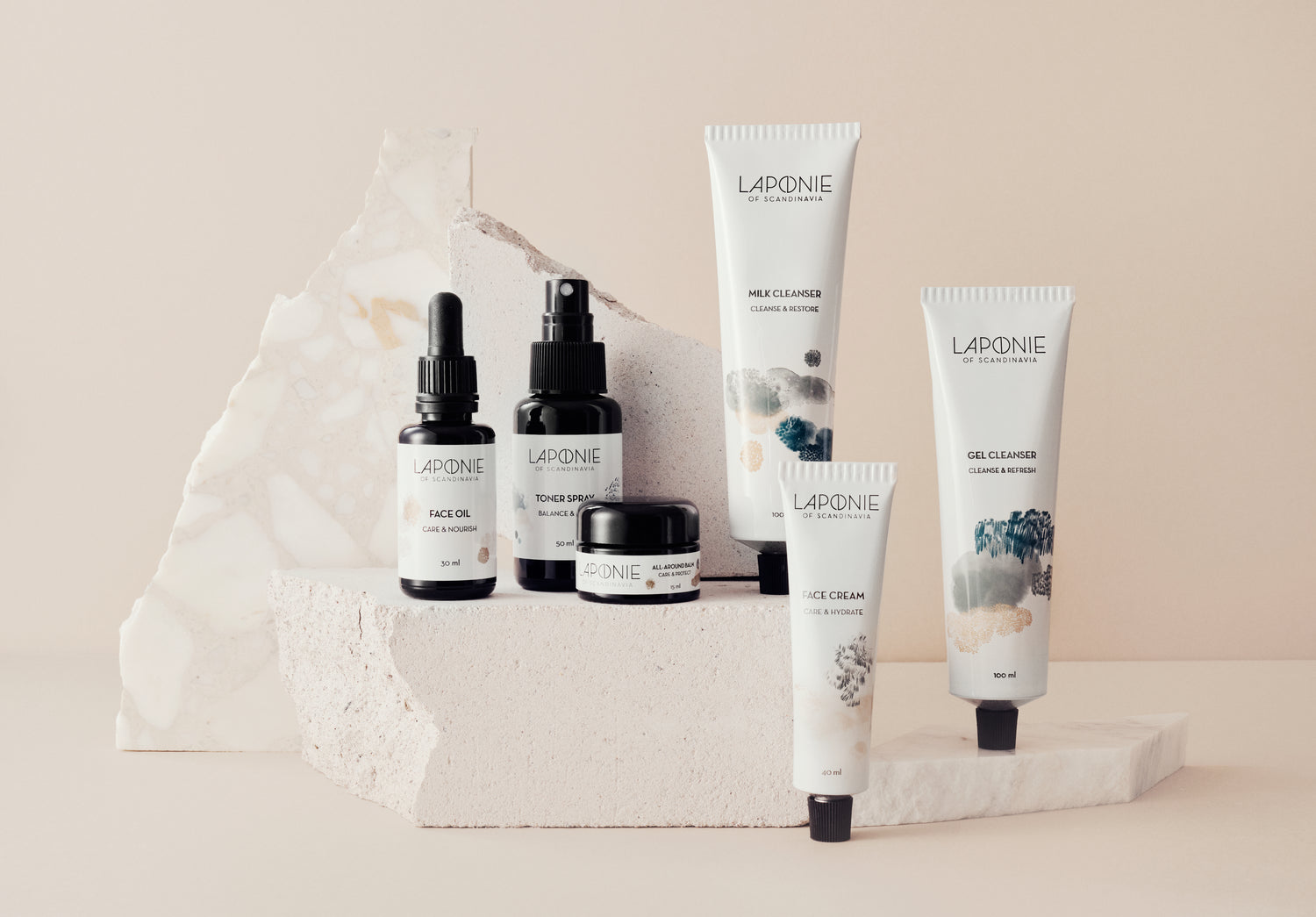In cosmetics, some commonly used microplastics are nylon-12, polyethylene (PE) and polymethyl methacrylate (PMMA). They are mainly used in makeup products for better spreadability, longer wear, and to give uneven skin a smoother appearance. Another ingredient that could possibly be classified as a microplastic in the near future is carbomer. Due to the uncertainty of how strict the proposed microplastics ban will be, many large companies have been working for years already on gradually replacing carbomer with naturally derived polymers in their products.
EU BAN
Microplastics have lately been in the spotlight as there has been an EU wide proposition to ban and/or limit primary microplastics in cosmetics and other industries due to their negative environmental impact. At the same time there has been a national petition to ban cosmetic microplastics in Finland.
Microplastics bioaccumulate, meaning once they are released in nature, they are impossible to retrieve. With time they break down into smaller pieces (nanoparticles), which have been found inside human and animal cells. Their potential effects on organisms and ecosystems have not been studied enough, but they are polluting our environment.
The proposed EU legislation will most likely be enforced in the beginning of 2021. All plastic microbeads will be banned immediately (already national legislation has banned plastic microbeads in countries like the UK, Sweden and Denmark). Within 18 months, product labels need to clearly state if they contain microplastics. In four years microplastics will be banned in rinse-off products and in six years in leave-on products.
Laponie of Scandinavia products contain no microplastic.
Source:
https://echa.europa.eu/-/echa-proposes-to-restrict-intentionally-added-microplastics





